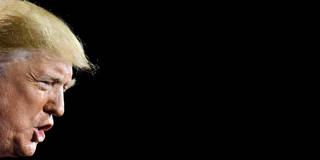For decades, the distinction between hard and soft power offered a framework for dividing the world between governments seeking mutually beneficial cooperation and those bent on zero-sum gains. But now that the traditional tools of soft power are increasingly being used as a means of coercion, the old rules no longer apply.
PARIS – International-relations theorists generally distinguish between soft and hard power. Soft power refers to the exercise of political influence through flexible, non-binding instruments such as economic assistance; the dissemination of environmental, health, and civil-security standards; and exports of cultural goods. Soft-power leaders are generally reluctant to coerce others and prefer to wield influence by example. The European Union is the leading exponent of this approach.

PARIS – International-relations theorists generally distinguish between soft and hard power. Soft power refers to the exercise of political influence through flexible, non-binding instruments such as economic assistance; the dissemination of environmental, health, and civil-security standards; and exports of cultural goods. Soft-power leaders are generally reluctant to coerce others and prefer to wield influence by example. The European Union is the leading exponent of this approach.